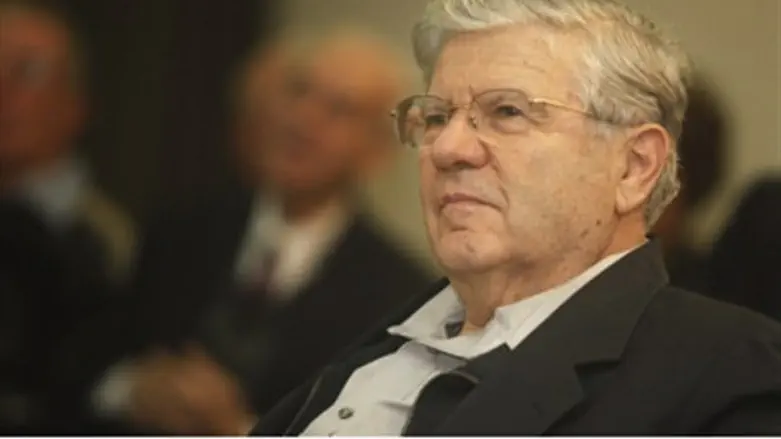
National Union head MK Yaakov Katz (Ketzaleh) on Tuesday said Zionism will suvive former Supreme Court President Aharon Barak.
Responding to Barak's assertion that many Jewish settlements are illegal, Katz said, "The value of democracy is so great that the generations of the Jewish nation will survive anomalous and negligible statements like those of Aharon Barak. Zionism and its settlement enterprise started before him and will continue apace long after him."
Barak denied in a television interview on the Knesset Channel this week that he ever said "everything is justiciable."
The approach – if not the exact quote – is accurately ascribed to Barak, who instituted a policy of judicial activism many Israelis regard as an usurpation of power from the cabinet and Knesset by the judiciary.
"I do not think everything is justiciable," Barak said. ”I do not think so! I never said it! What do they want from me?"
"I accept the term 'unjusticiable' and I am one of those who developed it… although there is an argument that some things are unconstitutional. That is, a certain norm has been breached… and yet you say 'listen, it's not so terrible, even if this norm has been breached, let them take care of it and not the court.'"
Barak said that if the Knesset wants the courts to rule differently, it should change the law, referring to the Basic Law of the Right to Human Dignity and Liberty.
"The law applies to the state of Israel, and to the armed forces in everything that they do. Therefore one must abide by the law; that is all. If you do not like it – change the law. If you think international humanitarian law forbids razing houses, and the court allows razing houses; or the other way around – change the law. But the state of Israel does not want to change the law. Our Knesset – and this is commendable – has hardly changed anything."
What Barak did not note in the above quote is that when the Knesset did try to change laws – the court often struck down those changes as "unconstitutional" – although Israel does not possess a constitution.
In one of his verdicts, Barak wrote: "The argument that says 'The matter was not a judicial one but a clearly political one,' mixes apples and oranges. The fact that something is 'clearly political' does not remove from that thing the fact that it is also 'a judicial matter.' Everything is a 'judicial matter,' in the sense that the law determines an attitude toward it, regarding whether it is allowed or not."
Richard Posner, a judge on the United States Court of Appeals for the Seventh Circuit, and an authority on jurisprudence, criticized Barak's decision to interpret the Basic Laws as Israel's constitution.
"Only in Israel," he stated, "do judges confer the power of abstract review on themselves, without benefit of a constitutional or legislative provision." He also argued that Barak's approach resulted in a "hyperactive judiciary."